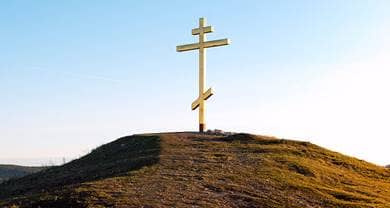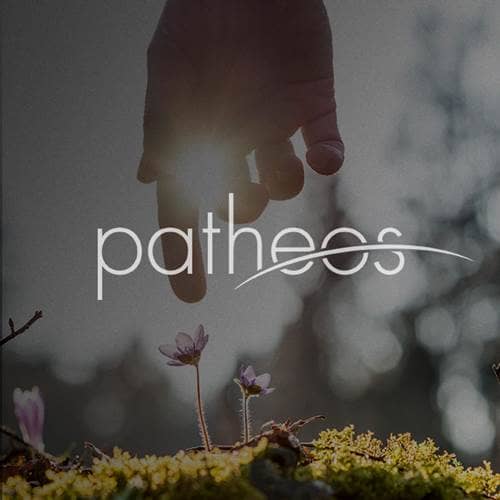- Trending:
- Pope Leo Xiv
- |
- Israel
- |
- Trump
- |
- Social Justice
- |
- Peace
- |
- Love

RELIGION LIBRARY
Eastern Orthodoxy
Vision for Society
Eastern Orthodoxy shares the basic Christian teachings regarding Judgment Day and the Kingdom of God, and offers a mystical vision of redemption known as apokatastasis in which all of creation will ultimately dwell in God. There are many other instances in which Eastern Orthodoxy, while doctrinally consistent with other major Christian denominations, adds a special emphasis or flavor that western Christians find unusual or distinctive. For this reason, over the past several decades Orthodox Christians have had a unique role to play in ecumenical discussions. Many Christians, Eastern Orthodox included, seek positive relations with other Christians, hoping for the ultimate restoration of Christian unity.
Eastern Orthodox Christians believe that the Orthodox Church is the "one, holy, catholic and apostolic church." Eastern Orthodoxy holds that by the grace of God, the Orthodox Churches have been able to preserve the faith and practices of the one true Church, founded by Jesus' apostles using the teachings and traditions that Jesus himself established. In their view, Orthodoxy is an unbroken stream of holy tradition that extends directly back into the very first churches, embodying a living continuity with the apostles and the Church Fathers. Orthodoxy, by its very nature, sees itself as the authentic Church, and the Eastern Orthodox Churches believe that it is their duty to bear witness to ancient tradition.
The Orthodox and Lutheran Churches have been engaged in international dialogue since 1981, while the international Orthodox-Reformed dialogue began in 1988 and the Orthodox-Methodist dialogue began in 1992. However, the Orthodox and the Anglicans have been engaged in various levels of dialogue since the 17th century. After the English Reformation, some Anglicans sought to maintain relations with the Orthodox Churches in the hopes that the Reformation divisions between the Churches of England and Rome were temporary. As the divisions became increasingly permanent, the Anglicans and Orthodox continued regular conversations, and an official dialogue was launched in 1973. So far, no real agreements have been reached, although both sides remain hopeful. From the Orthodox point of view, there is such a wide range of beliefs and practices in the worldwide Anglican communion, from the highly traditionalist to the very liberal, that a full agreement on all matters of faith is too elusive.
The Orthodox and Roman Catholic Churches have a great deal in common, but the question of the scope of the pope's ministry is a sticking point. Eastern Orthodoxy categorically rejects the doctrine of papal infallibility and the supreme universal jurisdiction of the pope, both affirmed by the First Vatican Council in 1870.
Ideally, conversations between Eastern Orthodox, Roman Catholic, and Protestant Christians will continue. There could be great advantages in the slow pace of deliberations, as Eastern Orthodoxy's experiences with some of the Oriental Orthodox traditions indicate. Full reconciliation with the so-called non-Chalcedonian churches is imminent, and greater political freedoms and the emergence of new theological leaders have prepared the way for fresh conversations with some of the churches of the East. The hope for Christian unity remains, and as long as the dialogue is alive, all sides benefit from new ideas and fellowship.
Study Questions:
1. What is apokatastasis?
2. Why is unity an important concept to Eastern Orthodoxy’s vision for society?
3. With whom might Eastern Orthodoxy followers engage in interreligious dialogue? Why?










